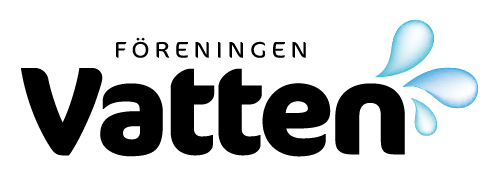A geochemical analysis of leachate plumes from two abandoned landfills. Present and long-term effects on groundwater
Groundwater samples have been taken from two abandoned landfills Måsängen and Lackalänga in Kävlinge community. The results show that groundwater from Lackalänga is a mixture of reduced and oxidized waters due to above-normal iron, manganese and ammonium as well as high nitrate and sulfate concentrations. Meanwhile, high bicarbonate buffers the pH between 7.7 and 8. […]
Reactive Filter Systems for Small Scale Wastewater Treatment – A literature review
The objective of this study was to outline via a literature review reactive filter systems for small scale wastewater treatment. Phosphorus and ammonium sorption were considered. Different reactive filter materials have been studied in a laboratory, though few in full-scale. The lightweigh clay aggregate product Filtralite P and Nordkalk Filtra P are the materials most […]
Utslipp av drivhusgassene N2O og CH4 fra sandfiltre og konstruerte våtmarker i sør-Norge / Emission of the greenhouse gases n2O and Ch4 from sand filters and constructed wetlands in south-east norway
This article reports about flux measurements of CH4 and N2O from two types of constructed wetlands in south-eastern Norway, a free surface water (FSW) wetland polishing chemically treated municipal wastewater and a meso scale sub-surface flow (SSF) wetland receiving wastewater from a single domestic household. Fluxes of both gases had a large temporal and spatial […]
Redusert avrenning fra urbane felt – Et eksempel på lokal overvannshåndtering / Restoration of the hydrological regime after urban development
Urbanization of a watershed increases the volume and peak discharge of runoff. This paper shows how the use of low impact development (LID) best management practices (BMPs) influences site hydrology by comparing two newly established residential areas in Connecticut, USA. The watersheds were 2.0 and 1.7 ha for the traditional storm water management and LID […]
Odorous wastewater emissions
The objective of this article is to review odour problems of wastewater treatment facilities and air emission treatment methods. The malodorous wastewater emissions consist of a complex mixture of substances with different properties. A screening of volatile organic and reduced sulphur compounds revealed very low concentrations of individual compounds (< 50 ppb), and only dimethyl […]
Alltid i VATTEN
Ledare, I blickpunkten, Föreningsmeddelanden, Litteratur, Konferenser, Företagsinformation och Pressreleaser.
Ser vi början på återanvändning av renat avloppsvatten för beredning av dricksvatten? / Do we see the beginning of reuse of treated wastewater for potable use?
Involuntary or unconscious reuse of wastewater for potable use is reality all over the world. It is enough to have the intake to a water purification plant situated downstream of a waste water treatment plant in the same catchment area. Though conscious reuse has only existed to a limited extent, out of esthetical, ethical, economical […]
Micro screening in wastewater treatment – an overview
Microscreens, or microstrainers, are widely used within wastewater treatment, and applications include primary and tertiary treatment as well as treatment of stormwater. The following paper is an attempt to present an overview of literature in order to identify possibilities and key questions associated with two types of microscreens based on gravity flow – disc- and […]
Are the International North Sea Conferences making progress?
International Conferences on the Protection of the North Sea have been arranged at intervals since 1984. The first conference in Bremen had a major impact regarding protection of the environmental quality of the North Sea. The following conferences tried to follow up on the outcome and to develop further environmental protection issues. The results of […]
